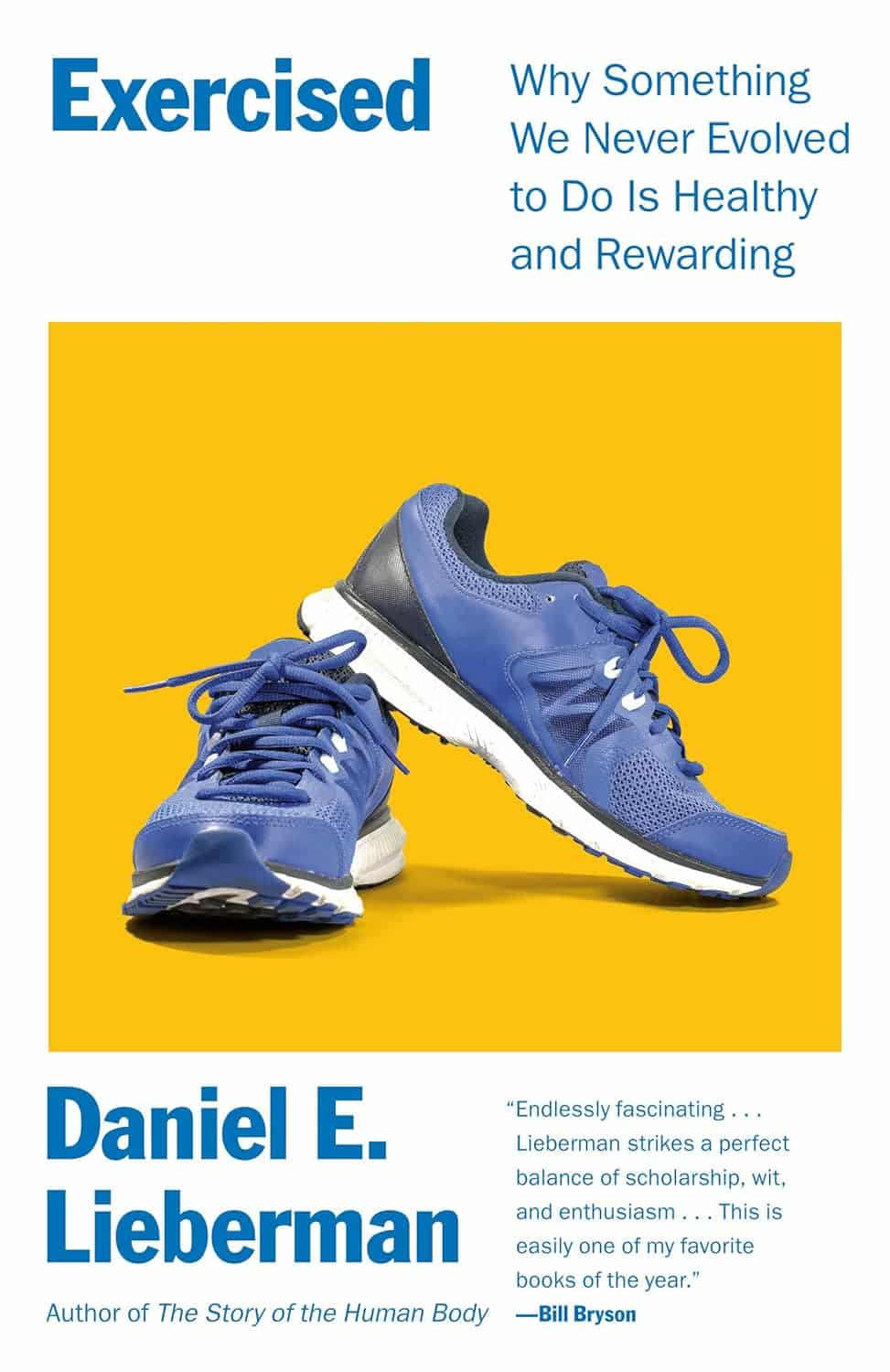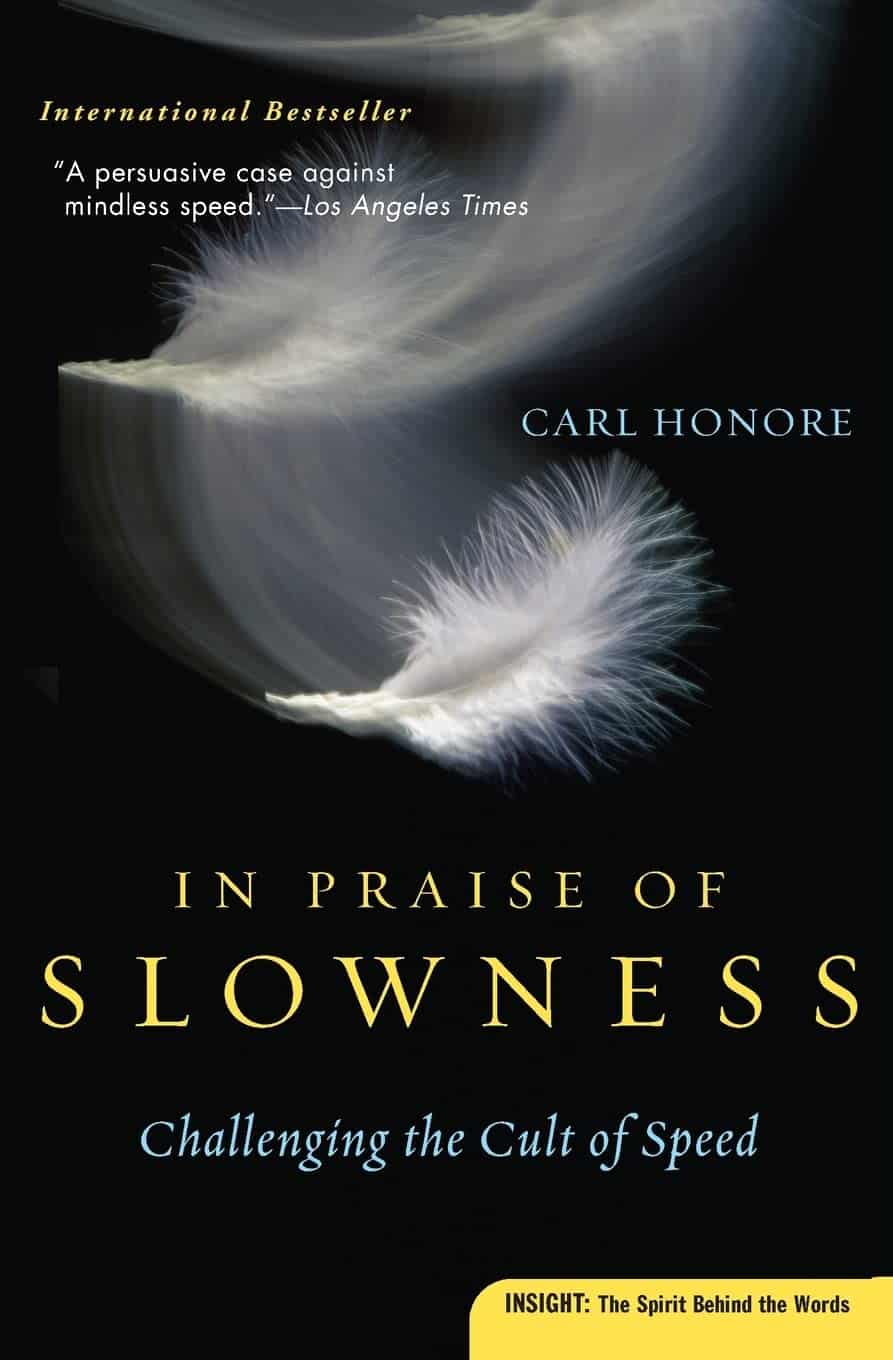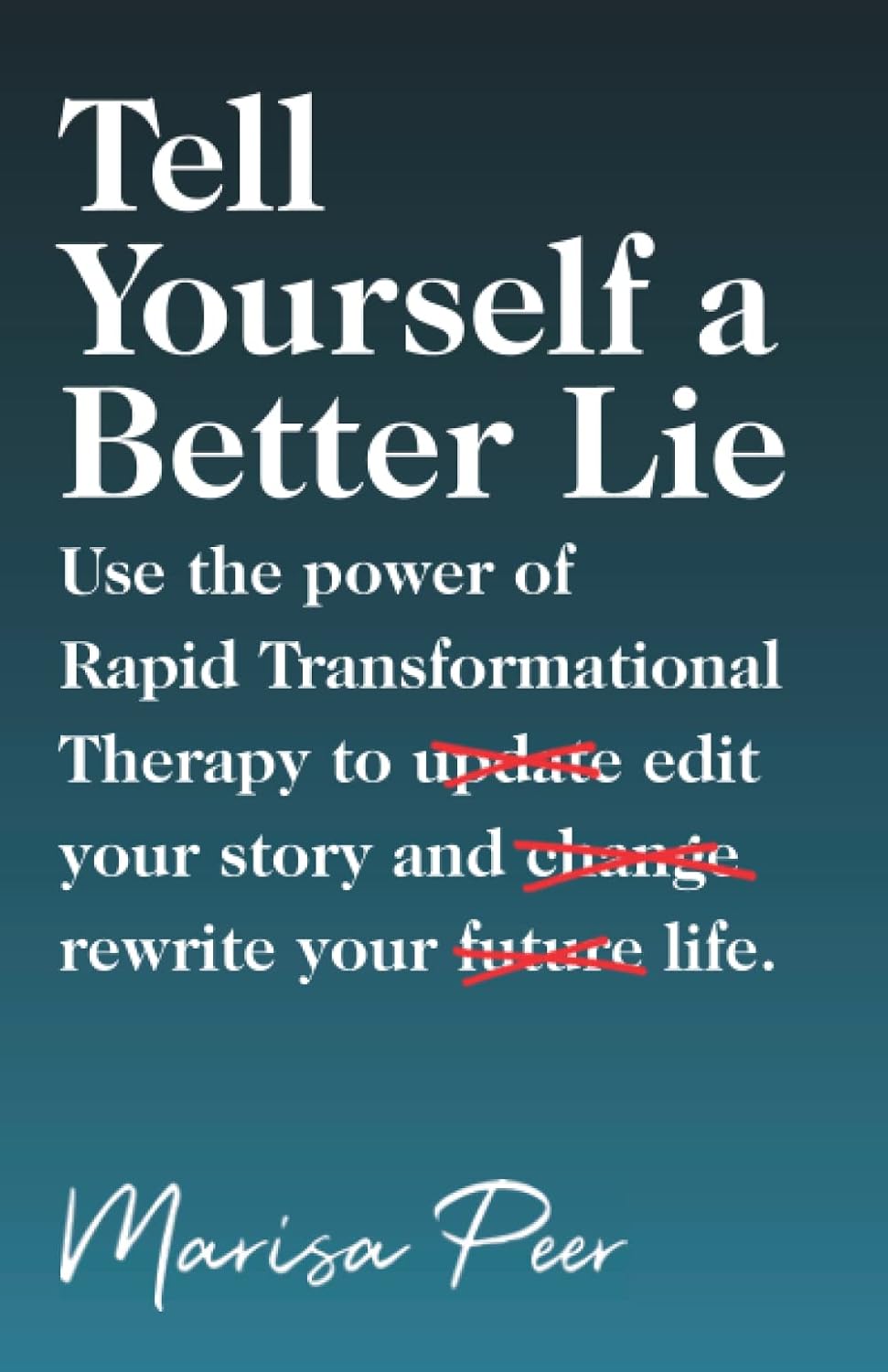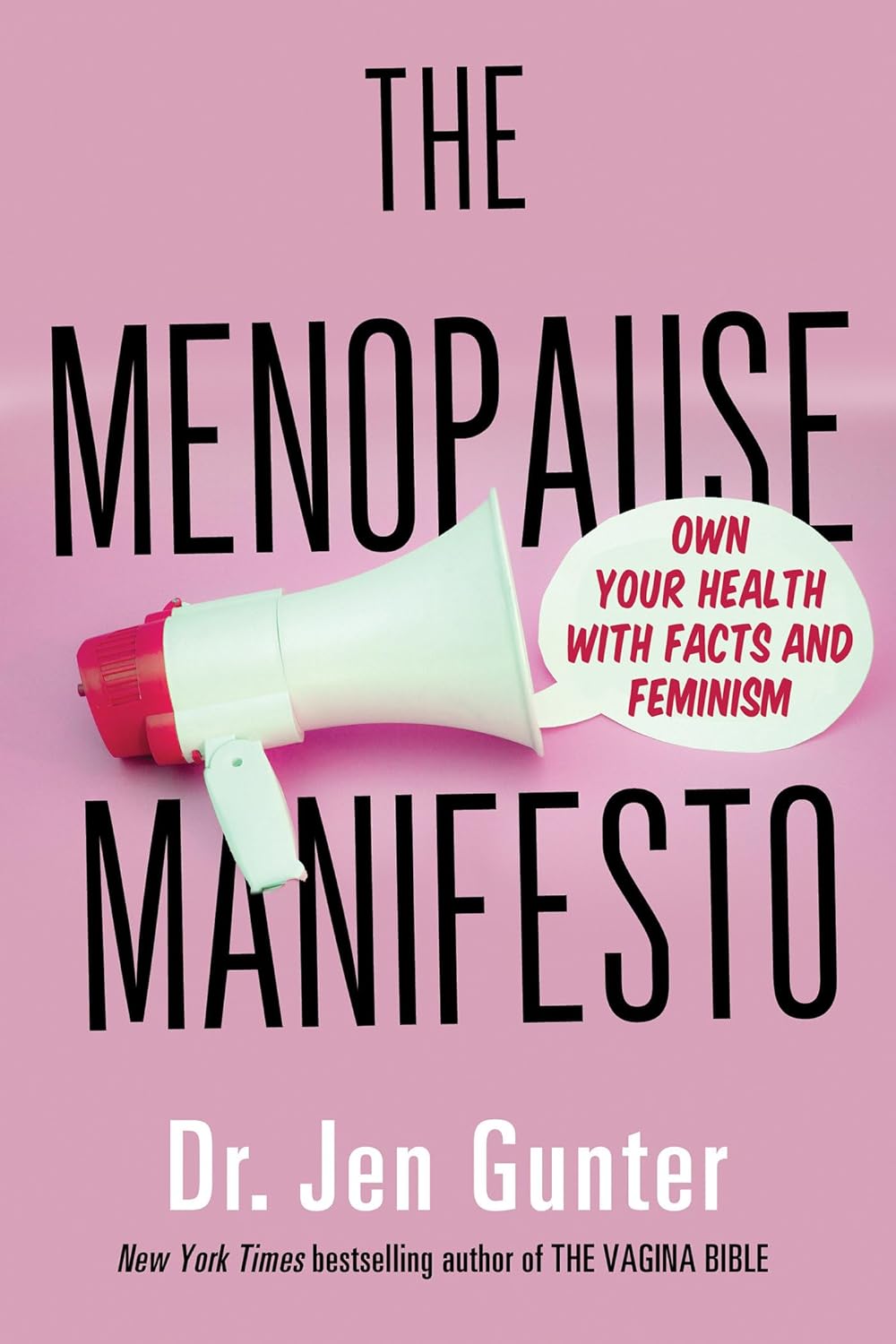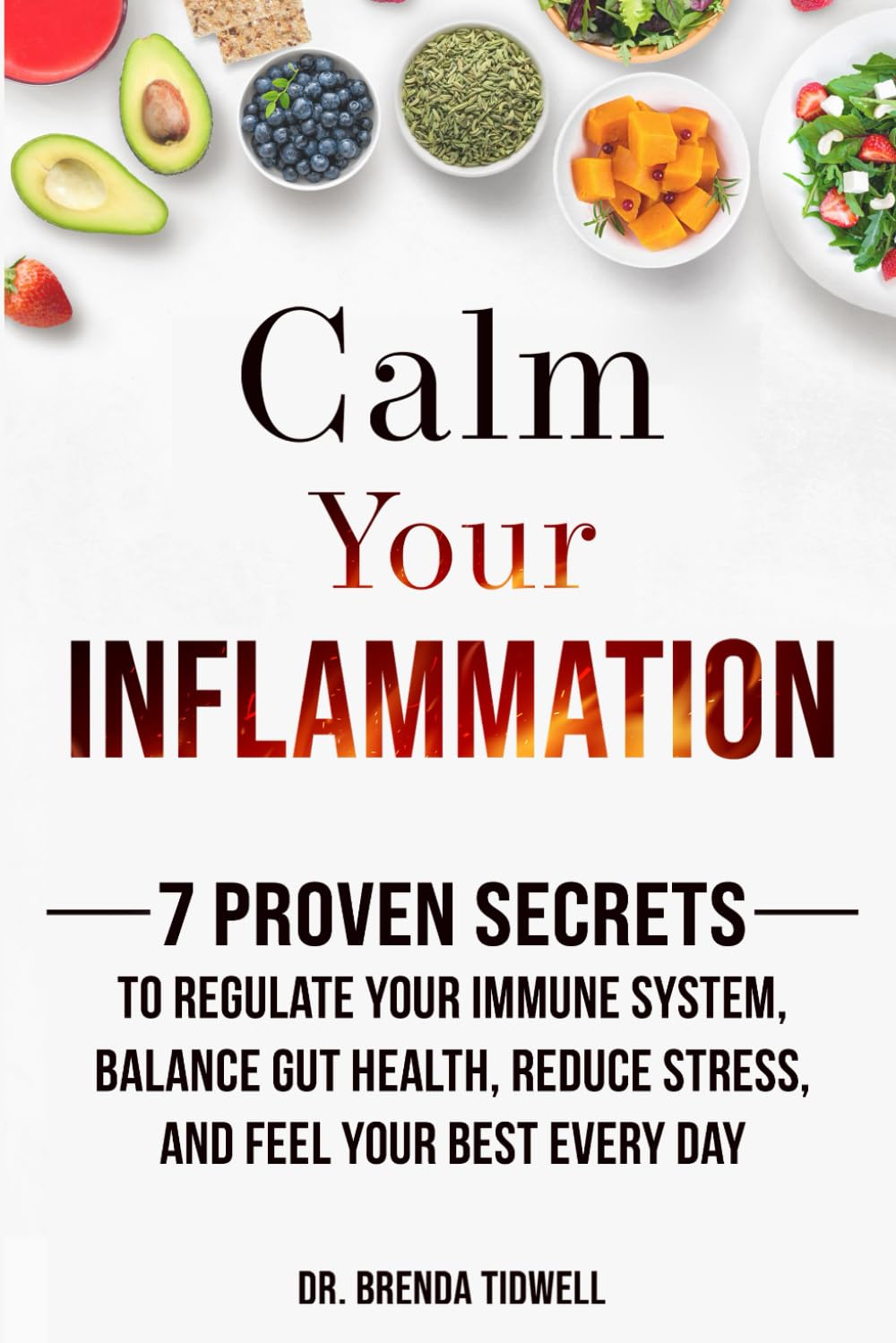
What causes food cravings? And what can we do about them?
10almonds is reader-supported. We may, at no cost to you, receive a portion of sales if you purchase a product through a link in this article.
Many of us try to eat more fruits and vegetables and less ultra-processed food. But why is sticking to your goals so hard?
High-fat, sugar-rich and salty foods are simply so enjoyable to eat. And it’s not just you – we’ve evolved that way. These foods activate the brain’s reward system because in the past they were rare.
Now, they’re all around us. In wealthy modern societies we are bombarded by advertising which intentionally reminds us about the sight, smell and taste of calorie-dense foods. And in response to these powerful cues, our brains respond just as they’re designed to, triggering an intense urge to eat them.
Here’s how food cravings work and what you can do if you find yourself hunting for sweet or salty foods.
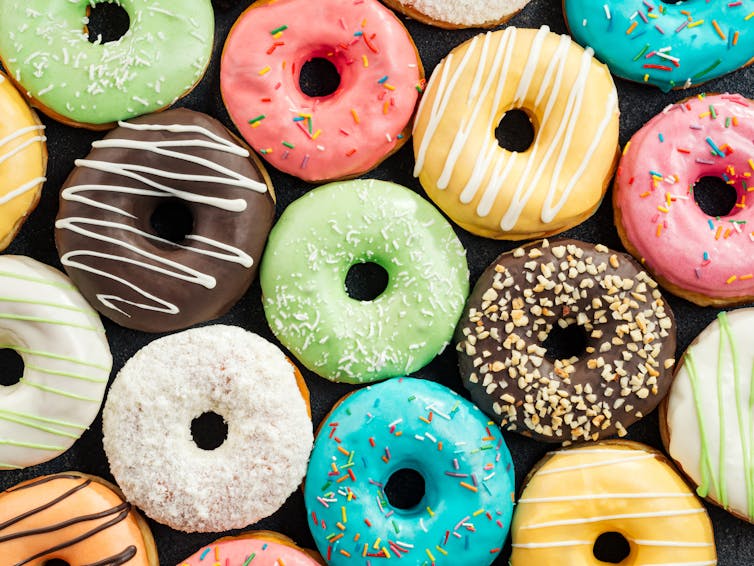
What causes cravings?
A food craving is an intense desire or urge to eat something, often focused on a particular food.
We are programmed to learn how good a food tastes and smells and where we can find it again, especially if it’s high in fat, sugar or salt.
Something that reminds us of enjoying a certain food, such as an eye-catching ad or delicious smell, can cause us to crave it.
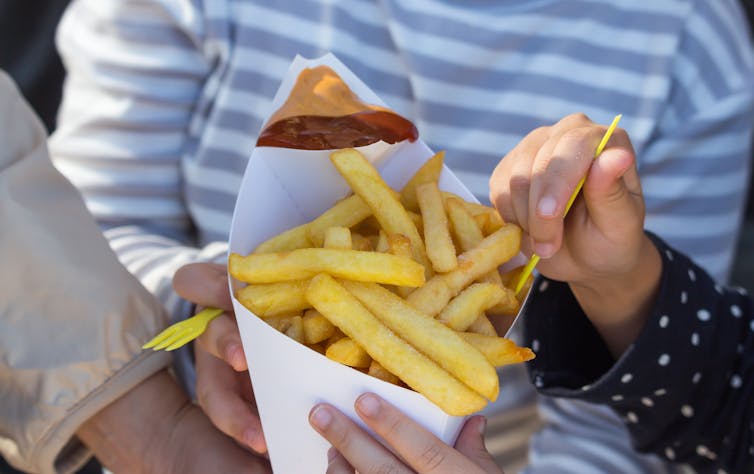
The cue triggers a physical response, increasing saliva production and gastric activity. These responses are relatively automatic and difficult to control.
What else influences our choices?
While the effect of cues on our physical response is relatively automatic, what we do next is influenced by complex factors.
Whether or not you eat the food might depend on things like cost, whether it’s easily available, and if eating it would align with your health goals.
But it’s usually hard to keep healthy eating in mind. This is because we tend to prioritise a more immediate reward, like the pleasure of eating, over one that’s delayed or abstract – including health goals that will make us feel good in the long term.
Stress can also make us eat more. When hungry, we choose larger portions, underestimate calories and find eating more rewarding.
Looking for something salty or sweet
So what if a cue prompts us to look for a certain food, but it’s not available?
Previous research suggested you would then look for anything that makes you feel good. So if you saw someone eating a doughnut but there were none around, you might eat chips or even drink alcohol.
But our new research has confirmed something you probably knew: it’s more specific than that.
If an ad for chips makes you look for food, it’s likely a slice of cake won’t cut it – you’ll be looking for something salty. Cues in our environment don’t just make us crave food generally, they prompt us to look for certain food “categories”, such as salty, sweet or creamy.
Food cues and mindless eating
Your eating history and genetics can also make it harder to suppress food cravings. But don’t beat yourself up – relying on willpower alone is hard for almost everyone.
Food cues are so powerful they can prompt us to seek out a certain food, even if we’re not overcome by a particularly strong urge to eat it. The effect is more intense if the food is easily available.
This helps explain why we can eat an entire large bag of chips that’s in front of us, even though our pleasure decreases as we eat. Sometimes we use finishing the packet as the signal to stop eating rather than hunger or desire.
Is there anything I can do to resist cravings?
We largely don’t have control over cues in our environment and the cravings they trigger. But there are some ways you can try and control the situations you make food choices in.
- Acknowledge your craving and think about a healthier way to satisfy it. For example, if you’re craving chips, could you have lightly-salted nuts instead? If you want something sweet, you could try fruit.
- Avoid shopping when you’re hungry, and make a list beforehand. Making the most of supermarket “click and collect” or delivery options can also help avoid ads and impulse buys in the aisle.
- At home, have fruit and vegetables easily available – and easy to see. Also have other nutrient dense, fibre-rich and unprocessed foods on hand such as nuts or plain yoghurt. If you can, remove high-fat, sugar-rich and salty foods from your environment.
- Make sure your goals for eating are SMART. This means they are specific, measurable, achievable, relevant and time-bound.
- Be kind to yourself. Don’t beat yourself up if you eat something that doesn’t meet your health goals. Just keep on trying.
Gabrielle Weidemann, Associate Professor in Psychological Science, Western Sydney University and Justin Mahlberg, Research Fellow, Pyschology, Monash University
This article is republished from The Conversation under a Creative Commons license. Read the original article.
Don’t Forget…
Did you arrive here from our newsletter? Don’t forget to return to the email to continue learning!
Recommended
Learn to Age Gracefully
Join the 98k+ American women taking control of their health & aging with our 100% free (and fun!) daily emails:
-
Building Psychological Resilience (Without Undue Hardship)
10almonds is reader-supported. We may, at no cost to you, receive a portion of sales if you purchase a product through a link in this article.
What’s The Worst That Could Happen?
When we talk about the five lifestyle factors that make the biggest difference to health, stress management would be a worthy addition as number six. We haven’t focused explicitly on that for a while, so let’s get ready to start the New Year on a good footing…
You’re not going to have a stress-free 2024
What a tender world that would be! Hopefully your stressors will be small and manageable, but rest assured, things will stress you.
And that’s key: “rest assured”. Know it now, prepare for it, and build resilience.
Sounds grim, doesn’t it? It doesn’t have to be, though.
When the forecast weather is cold and wet, you’re not afraid of it when you have a warm dry house. When the heating bill comes for that warm dry house, you’re not afraid of it when you have money to pay it. If you didn’t have the money and the warm dry house, the cold wet weather could be devastating to you.
The lesson here is: we can generally handle what we’re prepared for.
Negative visualization and the PNS
This is the opposite of what a lot of “think and grow rich”-style gurus would advise. And indeed, it’s not helpful to slide into anxious worrying.
If you do find yourself spiralling, here’s a tool for getting out of that spiral:
RAIN: an intervention for dealing with difficult emotions
For now, however, we’re going to practice Radical Acceptance.
First, some biology: you may be aware that your Central Nervous System (CNS) branches into the Sympathetic Nervous System (SNS) and the Parasympathetic Nervous System (PNS).
The PNS is the part that cues our body to relax, and suppresses our fight/flight response. We’re going to activate it.
Activating the PNS is easy for most people in comfortable circumstances (e.g., you are not currently exposed to stressful stimuli). It may well be activated already, and if it’s not, a few deep breaths is usually all it takes.
If you’d like a quick and easy Mindfulness-Based Stress Reduction (MBSR) technique, here you go:
No-Frills, Evidence-Based Mindfulness
Activating the PNS is hard for most people in difficult circumstances (e.g., you either are currently exposed to stressful stimuli, or you are in one of the emotional spirals we discussed earlier).
However, we can trick our bodies and brains by—when we are safe and unstressed—practicing imagining those stressful stimuli. Taking a moment to not just imagine it experientially, but immersively. This, in CBT and DBT, is the modern equivalent to the old samurai who simply accepted, before battle, that they were already dead—and thus went into battle with zero fear of death.
A less drastic example is the zen master who had a favorite teacup, and feared it would get broken. So he would tell himself “the cup is already broken”. One day, it actually broke, and he simply smiled ruefully and said “Of course”.
How this ties together: practice the mindfulness-based stress reduction we linked above, while imagining the things that do/would stress you the most.
Since it’s just imagination, this is a little easier than when the thing is actually happening. Practicing this way means that when and if the thing actually happens (an unfortunate diagnosis, a financial reversal, whatever it may be), our CNS is already well-trained to respond to stress with a dose of PNS-induced calm.
You can also leverage hormesis, a beneficial aspect of (in this case, optional and chosen by you) acute stress:
Dr. Elissa Epel | The Stress Prescription
Psychological resilience training
This (learned!) ability to respond to stress in an adaptive fashion (without maladaptive coping strategies such as unhelpful behavioral reactivity and/or substance use) is a key part of what in psychology is called resilience:
And yes, the CBT/DBT/MBSR methods we’ve been giving you are the evidence-based gold standard.
Only the best for 10almonds subscribers! 😎
❝That was helpful, but not cheery; can we finish the year on a cheerier note?❞
We can indeed:
How To Get Your Brain On A More Positive Track (Without Toxic Positivity)
Take care!
Share This Post
-
Exercised – by Dr. Daniel Lieberman
10almonds is reader-supported. We may, at no cost to you, receive a portion of sales if you purchase a product through a link in this article.
Surely the title is taking liberties? We must have evolved to exercise, right? Not exactly.
We evolved to conserve energy. Our strength-to-weight ratio is generally unimpressive, we cannot casually hang in trees, and we spend a third of our lives asleep.
Strengths that we do have, however, include a large brain and a versatile gut perfect for opportunism. Again, not the indicators of being evolved for exercise.
So, Dr. Lieberman tells us, if we’re not inclined to get up and go, that’s quite natural. So, why does it feel good when we do get up and go?
This book covers a lot of the “this not that” aspects of exercise. By this we mean: ways that we can work with or against our bodies, for both physical and psychological fulfilment.
There’s an emphasis on such things as:
- movement without excessive exertion
- persistence being more important than power
- strength-building but only so far as is helpful to us
…and many other factors that you won’t generally see on your gym’s motivational posters
Bottom line: this book is for all those who have felt “exercise is not for me” but would also like the benefits of exercise. It turns out that there’s a best-of-both-worlds sweet spot!
Click here to check out Exercised and get working with your body rather than against it!
Share This Post
-
In Praise of Slowness – by Carl Honoré
10almonds is reader-supported. We may, at no cost to you, receive a portion of sales if you purchase a product through a link in this article.
This isn’t just about “taking the time to smell the roses” although yes, that too. Rather, it’s mostly about looking at what drives us to speed everything up in the first place, and correcting where appropriate.
If your ancestors had time to eat fruit and lie in the sun, then why, with all of modern technology now available, are you harangued 16+ hours a day by the pressures of universally synchronized timepieces?
Honoré places a lot of the blame squarely on the industrial revolution; whereas previously our work would be limited by craftsmen who take a year to complete something, or the pace of animals in a field, now humans had to keep up with the very machines that were supposed to serve us—and it’s only got worse from there.
This book takes a tour of many areas affected by this artificial “need for speed”, and how it harms not just our work-life balance, but also our eating habits, the medical attention we get, and even our love lives.
The prescription is deceptively simple, “slow down”. But Honoré dedicates the final three chapters of the book to the “how” of this, when of course there’s a lot the outside world will not accommodate—but where we can slow down, there’s good to be gained.
Bottom line: if you’ve ever felt that you could get all of your life into order if you could just pause the outside world for a week or two, this is the book for you.
Click here to check out In Praise of Slowness, and make time for what matters most!
Share This Post
Related Posts
-
Tell Yourself a Better Lie – by Marissa Peer
10almonds is reader-supported. We may, at no cost to you, receive a portion of sales if you purchase a product through a link in this article.
As humans, we generally lie to ourselves constantly. Or perhaps we really believe some of the things we tell ourselves, even if they’re not objectively necessarily true:
- I’ll always be poor
- I’m destined to be alone
- I don’t deserve good things
- Etc.
Superficially, it’s easy to flip those, and choose to tell oneself the opposite. But it feels hollow and fake, doesn’t it? That’s where Marissa Peer comes in.
Our stories that we tell ourselves don’t start where we are—they’re generally informed by things we learned along the way. Sometimes good lessons, sometimes bad ones. Sometimes things that were absolutely wrong and/or counterproductive.
Peer invites the reader to ask “What if…”, unravel how the unhelpful lessons got wired into our brains in the first place, and then set about untangling them.
“Tell yourself a better lie” does not mean self-deceit. It means that we’re the authors of our own stories, so we might as well make them work for us. Many things in life are genuinely fixed; others are open to interpretation.
Sorting one from the other, and then treating them correctly in a way that’s helpful to us? That’s how we can stop hurting ourselves, and instead bring our own stories around to uplift and fortify us.
Get Your Copy of “Tell Yourself A Better Lie” on Amazon Today!
Don’t Forget…
Did you arrive here from our newsletter? Don’t forget to return to the email to continue learning!
Learn to Age Gracefully
Join the 98k+ American women taking control of their health & aging with our 100% free (and fun!) daily emails:
-
The Menopause Manifesto – by Dr. Jen Gunter
10almonds is reader-supported. We may, at no cost to you, receive a portion of sales if you purchase a product through a link in this article.
From the subtitle, you may wonder: with facts and feminism? Is this book about biology or sociology?
And the answer is: both. It’s about biology, principally, but without ignoring the context. We do indeed “live in a society”, and that affects everything from our healthcare options to what is expected of us as women.
So, as a warning: if you dislike science and/or feminism, you won’t like this book.
Dr. Jen Gunter, herself a gynaecologist, is here to arm us with science-based facts, to demystify an important part of life that is commonly glossed over.
She talks first about the what/why/when/how of menopause, and then delivers practical advice. She also talks about the many things we can (and can’t!) usefully do about symptoms we might not want, and how to look after our health overall in the context of menopause. We learn what natural remedies do or don’t work and/or can be actively harmful, and we learn the ins and outs of different hormone therapy options too.
Bottom line: no matter whether you are pre-, peri-, or post-menopausal, this is the no-BS guide you’ve been looking for. Same goes if you’re none of the above but spend any amount of time close to someone who is.
Don’t Forget…
Did you arrive here from our newsletter? Don’t forget to return to the email to continue learning!
Learn to Age Gracefully
Join the 98k+ American women taking control of their health & aging with our 100% free (and fun!) daily emails:
-
Calm Your Inflammation – by Dr. Brenda Tidwell
10almonds is reader-supported. We may, at no cost to you, receive a portion of sales if you purchase a product through a link in this article.
The book starts with an overview of inflammation, both acute and chronic, before diving into how to reduce the latter kind (acute inflammation being usually necessary and helpful, usually fighting disease rather than creating it).
The advice in the book is not just dietary, and covers lifestyle interventions too, including exercise etc—and how to strike the right balance, since the wrong kind of exercise or too much of it can sabotage our efforts. Similarly, Dr. Tidwell doesn’t just say such things as “manage stress” but also provides 10 ways of doing so, and so forth for other vectors of inflammation-control. She does cover dietary things as well though, including supplements where applicable, and the role of gut health, sleep, and other factors.
The style of the book is quite entry-level pop-science, designed to be readable and comprehensible to all, without unduly dumbing-down. In terms of hard science or jargon, there are 6 pages of bibliography and 3 pages of glossary, so it’s neither devoid of such nor overwhelmed by it.
Bottom line: if fighting inflammation is a priority for you, then this book is an excellent primer.
Click here to check out Calm Your Inflammation, and indeed calm your inflammation!
Don’t Forget…
Did you arrive here from our newsletter? Don’t forget to return to the email to continue learning!
Learn to Age Gracefully
Join the 98k+ American women taking control of their health & aging with our 100% free (and fun!) daily emails:



